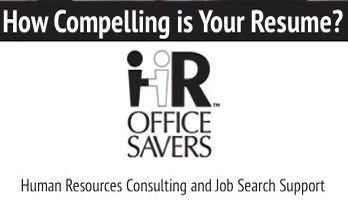by Financial Professional: Erin Long
 Don’t you just love tax season? No? Me neither. Like most of my clients, you probably recognize the necessity of taxes, but you don’t want to pay a penny more than your fair share.
Don’t you just love tax season? No? Me neither. Like most of my clients, you probably recognize the necessity of taxes, but you don’t want to pay a penny more than your fair share.
Before I discuss some tax efficiency strategies, let me be clear that I am not an accountant. I collaborate with CPAs and other tax professionals, but we have different roles. Accountants know tax laws inside and out and are an invaluable member of your planning team. Their primary focus is minimizing taxes for the current year, while my role is to recommend tax strategies that complement your short and long-term financial goals.
Taxes are an unknown variable that could wreak havoc on your financial plan. What direction do you think tax rates are headed? If you consider that our national debt has been climbing, and our tax rates have never been lower, you can see we have a potential problem on our hands. The current tax cuts are set to sunset in 2025, but a new administration could repeal them sooner. Right now, you have a window of opportunity to make choices.
When the 401(k) was introduced in 1978, workers were told to: “Defer taxes now because when you retire you’ll be in a lower tax bracket.” In some cases, this makes perfect sense, but we are seeing that many are retiring into a higher tax bracket than they were in their working years. If you, like most people, have most of your assets in a tax later account, such as an IRA or 401(k) you could be sitting on a tax time bomb. At 70 ½, you are required to take a portion of your tax deferred money whether you want to or not. Whether you are retired or still working, you can take steps now to increase your tax diversity.
One strategy to consider is Roth conversions from your existing Traditional IRAs. If you have some room in your tax bracket, you can convert part of your Traditional IRA to a Roth IRA and pay the taxes on the amount you convert. Five years after the conversion, and if you’re at least 59 ½ or the distribution is being paid to your heirs, all the earnings in the Roth IRA come out tax free. It’s like a farmer paying for the seed and getting the whole crop for free. Would you rather pay taxes on the seed, or the whole crop?
If you are employed, find out if your employer offers a Roth 401(k) or 403(b) option, or start a Roth IRA of your own. When you save in a Roth, there’s no current year tax deduction, but all the future growth of that account will be tax free once the Roth IRA has been open for at least 5 years and you’re at least 59 ½ or paid to your heirs.
Another strategy to consider is if you are currently taking Required Minimum Distributions (RMD), and you do not need some or all of it to live on, you could take a “Qualified Charitable Distribution (QCD).” A QCD allows you to give up to $100,000 annually directly from your IRA to your church or charity. This counts towards your RMD and the church or charity gets the money tax free. It’s a win-win!
There are many more ways to save on taxes. Check with a trusted financial professional to find out if any of these strategies make sense for your situation.
About Thrivent Financial
Thrivent is a not-for-profit financial services organization that helps Christians be wise with money . As a mission-driven, membership-owned organization, it offers its more than 2 million members and customers a broad range of financial products, services and guidance to help them obtain a life of contentment, confidence and generosity. Thrivent and its subsidiary and affiliate companies offer insurance, investments, banking and advice over the phone, online as well as through financial professionals and independent agents nationwide. Thrivent is a FORTUNE 500 company with $134 billion in assets under management/advisement (as of 12/31/18). For more than a century it has helped Christians make wise money choices that reflect their values while providing them opportunities to demonstrate their generosity where they live, work and worship. For more information, visit Thrivent.com. You can also find us on Facebook and Twitter.
Some states have not yet adopted the federal rules governing the tax treatment of Roth IRAs and there may be conflicts between federal and state tax treatment of IRA conversions. Consult your tax professional for your state’s tax rules.
Thrivent and its financial professionals do not provide legal, accounting or tax advice. Consult your attorney or tax professional.
Financial Professional: Erin Long
4961 Babcock Street, Suite 8 Palm Bay Fl, 32905 / 321-872-4410 https://connect.thrivent.com/erin-long / erin.long@thrivent.com
THRIVENT IS THE MARKETING NAME FOR THRIVENT FINANCIAL FOR LUTHERANS. Insurance products issued by Thrivent Financial for Lutherans. Not available in all states. Securities and investment advisory services offered through Thrivent Investment Management Inc. A registered investment adviser, member FINRA and SIPC, and a subsidiary of Thrivent. Licensed agent/producer of Thrivent. Registered representative of Thrivent Investment Management, Inc. Advisory services available through investment adviser representatives only. Thrivent.com/disclosures.








